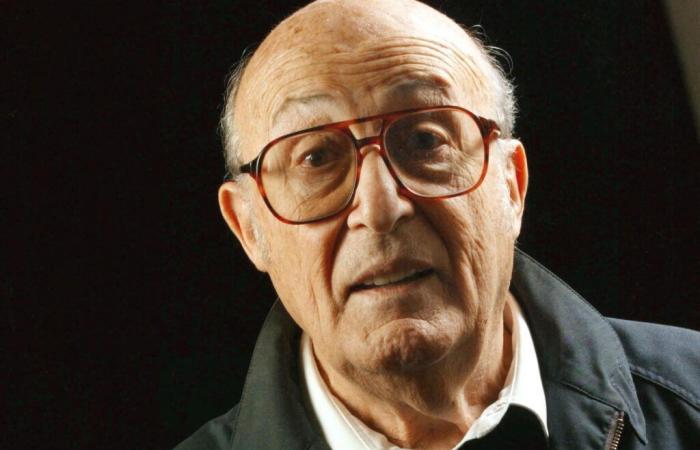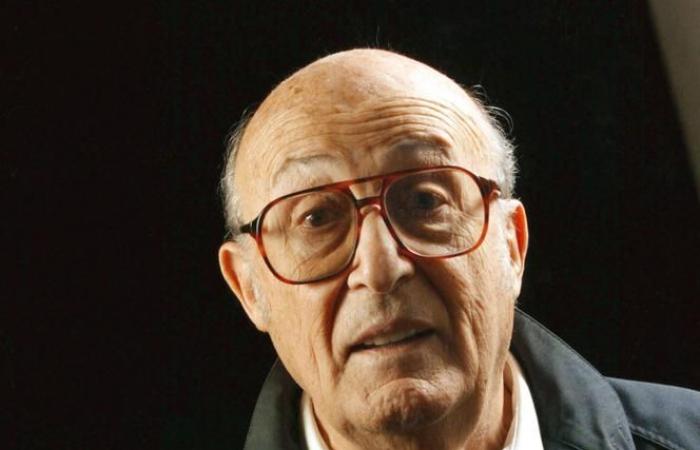FRANCE CULTURE – SUNDAY DECEMBER 29 AT 5 P.M. – DOCUMENTARY
Will Eisner. If this name doesn't mean anything to you, the show imagined by David Unger will undoubtedly make you want to open the doors of the nearest bookstore. For those who know him, Benjamin Hû's beautiful broadcast should allow you to spend an hour in very good company, especially since the soundtrack is a real treasure.
“I drew from my New York avant-garde and klezmer discothequeDavid Unger confided to us. Many titles composed or produced by John Zorn, the funniest of which allowed me to give a cartoon/comic side to the documentary. As for the other pieces, I wanted them to be very “film noir”: Joshua Redman for the intro, the Lounge Lizards [le groupe de John Lurie, ami et acteur de Jim Jarmusch] for the thriller/suspense side. As for the evocation of the Vietnam War, the possibility of using the title Fortunate Son [de Creedence Clearwater Revival] was, for me, euphoric! »
Let us first say, in a few dates and in a few words, that Will Eisner (1917-2005) is one of the most flamboyant masters of comics, that he experienced the poverty and anti-Semitism of the Bronx in the 1920s “before extricating himself from it by the strength of his pencil and his qualities as a storyteller”as David Unger summarizes in the preamble. Before adding that he was the one who invented the first anti-superhero in the history of comics, aka The Spirit, a detective back from the dead, a failed seducer, full of flaws and self-deprecation.
In the service of pedagogy
For Joann Sfar, who interviewed Will Eisner for Charlie Hebdo shortly after the attacks of September 11, 2001, “Eisner knew how to play with superhero figures, with machismo and sexism.” For the author of Rabbi's Cat and soon What to do with the Jews? (to be published on January 16, 2025 by Editions des Arènes), Eisner has his place alongside Romain Gary, Saul Bellow, Philip Roth.
After the Second World War, Eisner began to imagine more realistic stories and put his drawing at the service of education. During the first international comics congress, in New York, in 1972, he met the designer Denis Kitchen, who largely testified in this unit. Three years later, Will Eisner was invited to the second edition of the Angoulême Festival, received the Grand Prix and, in 1978, published A pact with God (Delcourt), which marks a turning point both in his work and in comics: a true graphic novel, it is also a memoir about the Jews of the Bronx in the 1930s.
Read the review (2021) | Article reserved for our subscribers Comics: Will Eisner, first theoretician of the graphic novel, exposed in all his inventiveness
Read later
As editor Didier Pasamonik recalls: “Before 1978, in comics, Judaism was not a subject. Eisner understood that the best way to fight anti-Semitism was to educate, which he did in particular with Fagin the Jew [Delcourt, 2004]. » Son Conspiracy. The Secret History of the “Protocols of the Elders of Zion” (Grasset) will appear posthumously while Will Eisner said he was worried about the rise of anti-Semitism and fake news. The year was 2005, and X didn't exist yet.
Will Eisner (1917-2005), Life is a graphic novelby David Unger (Fr., 2024, 58 min). On demand on Radiofrance.fr and all the usual listening platforms.







